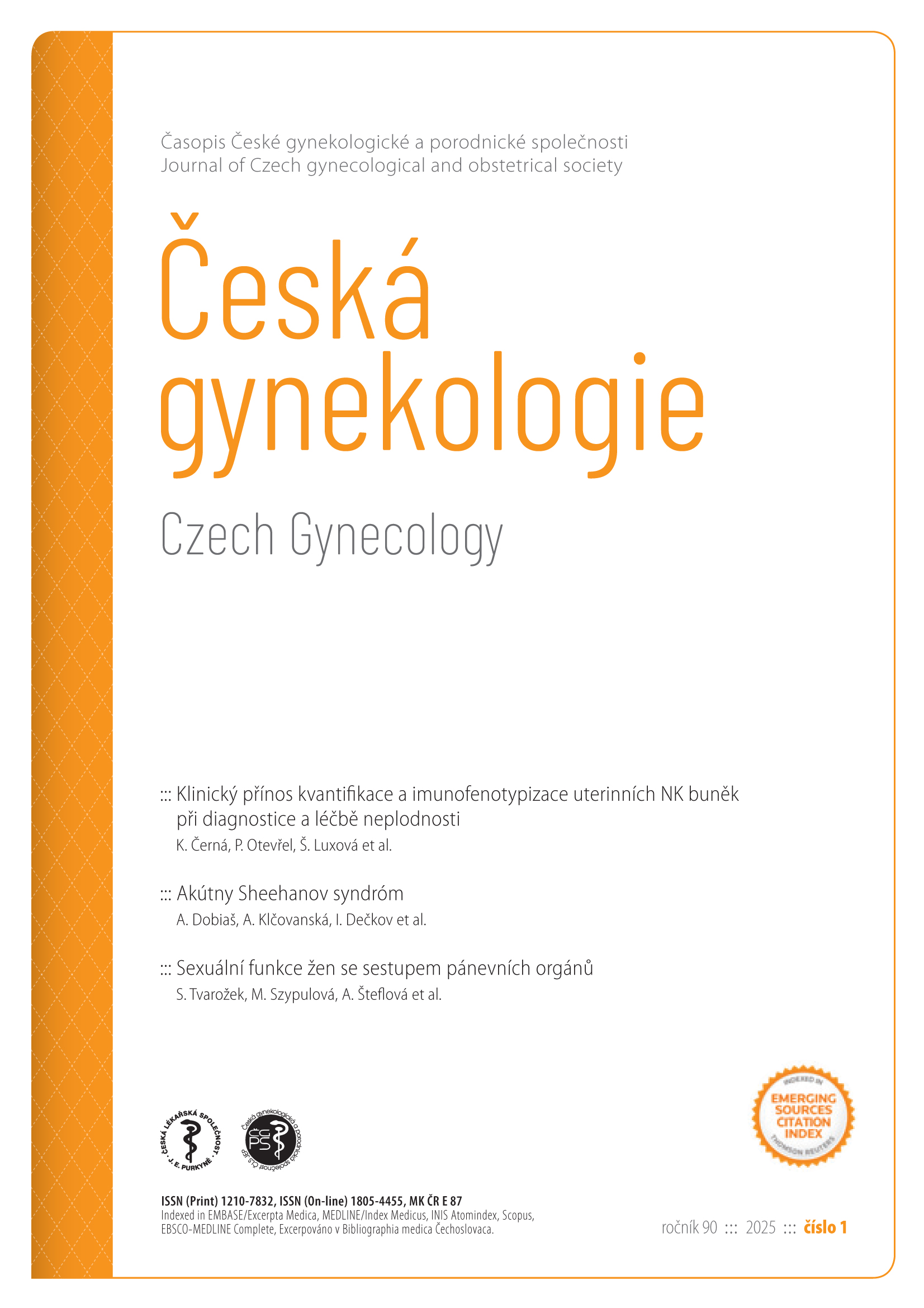Sexual function in women with pelvic organ prolapse
Keywords:
sexual function, pelvic organ prolapse, sacrocolpopexy, transvaginal mesh repair, native tissue repair, pelvic floor muscle training, body imageAbstract
A woman‘s sexuality is a complex phenomenon involving several factors, among which age and health are the most important. However, other aspects are not negligible. The impact of pelvic organ prolapse on sexual function cannot be ignored, as the reported prevalence of pelvic organ prolapse in female population exceeds 50%. This article presents a systematic review of articles dealing with the impact of pelvic organ prolapse on female sexual function. Sexual dysfunction is common in women with pelvic organ prolapse, regardless of prolapse stage or the compartment affected. Estrogen therapy has no effect on sexuality in women with prolapse, while pelvic floor muscle training may provide some improvement. There is no evidence that conservative therapy using a pessary is associated with negative impact on sexual function. Native tissue repair tends to improve sexual function in general, except for posterior colporrhaphy, which was frequently associated with dyspareunia. No correlation between postoperative vaginal length and change in sexual function was identified. The impact of transvaginal mesh repair on sexuality remains unclear. In contrast, there is enough evidence proving that sacrocolpopexy significantly improves sexual function in women.





